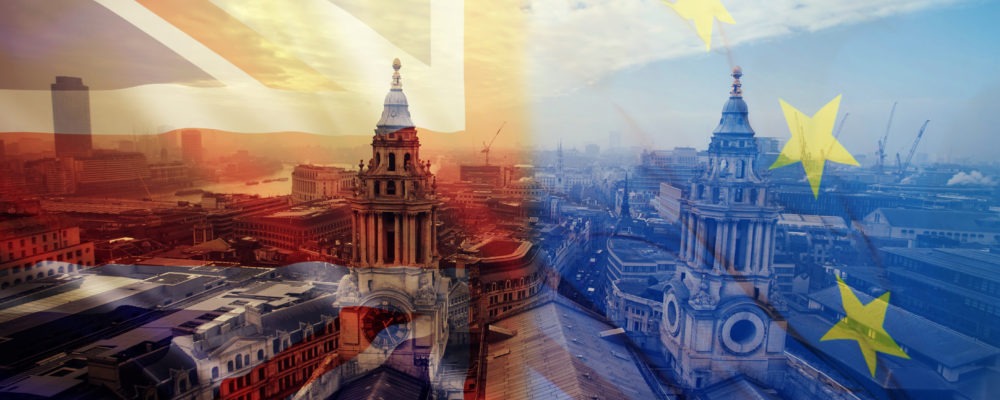
Government’s post-Brexit trade policy faces first High Court test

The UK government is facing the first significant legal challenge to its post-Brexit independent trade policy after the High Court agreed that a decision to cut tariffs on some UK sugar imports could be subject to a judicial review.
The case, which has been brought by British Sugar plc against the international trade secretary Liz Truss, is also the first test of how far contentious “state aid” clauses in the Northern Ireland protocol will impinge on the UK government’s ability to issue subsidies.
Legal experts said the case would be keenly watched by ministers and industry for precedence in UK trade and subsidy policy.
The legal challenge was brought by British Sugar in response to a decision by Truss last December to unilaterally allow 260,000 tonnes of “raw cane sugar” to enter the UK tariff-free for 12 months from January 1 as part of the UK’s post-Brexit global tariff schedule.
British Sugar, which refines sugar from homegrown sugar beet, argued in submissions to the High Court, seen by the FT, that the decision amounted to a state subsidy for its rival, US-owned Tate & Lyle Sugars, because it is the only main refiner of cane sugar in the UK.
Lawyers for British Sugar argued that the effective “subsidy” would also unfairly undercut EU sugar producers who export 500,000 tonnes of sugar to the UK and be in breach of both the Northern Ireland protocol and the EU-UK Trade and Cooperation Agreement (TCA).
Under article 10 of the protocol, any UK government state aid decision that impacts on goods traded with Northern Ireland must be referred to the European Commission for approval.
British Sugar argued that the decision to cut tariffs on raw cane sugar had the effect of “selectively advantaging” Tate & Lyle Sugars “in a manner which affected trade or investment between Northern Ireland and the European Union” and was “incompatible” with both the protocol and the TCA.
In its response, the government said British Sugar’s arguments were “ambitious and counter-intuitive”. It rejected the argument that a tariff decision on sugar amounted to a subsidy that required notification under either the TCA or the protocol.
“If the claimant were right, the UK government would have to consider notifying each and every element of its global tariff regime to the European Commission as a potential state aid,” the government said in its submission.
The judge, Justice Foxton, ordered that British Sugar’s case should be heard, while accepting that it faced some “formidable obstacles” if the court was to be convinced.
He added that the government had failed to point to text in the protocol that delivered a “knockout blow” to British Sugar’s case, noting that their complaint was not against all tariffs, but only those that had arguably been unilaterally and selectively applied.
Paul Kenward, managing director of British Sugar, said the decision to challenge the government had not been taken lightly, adding that Truss’s decision to single out cane sugar for special treatment was “unfairly benefiting that one American company to the tune of at least £12m this year”.
Gerald Mason, senior vice-president of Tate & Lyle Sugars said the move to cut tariffs on sugar clearly did not amount to a subsidy.
“British Sugar using this argument to keep us constrained while they are deregulated is pure opportunism,” he added.
Alexander Rose, an EU competition expert at law firm DWF, said the case was not only the first UK subsidy control case but it would also test when article 10 of the Northern Ireland protocol, which applies EU state aid law, will be engaged.
The protocol is part of the UK’s Brexit withdrawal agreement which avoids a land border on the island of Ireland, through the creation of a trade frontier in the Irish Sea to ensure all goods flowing from Great Britain into Northern Ireland comply with the bloc’s rules.
“This case will be followed intently not only by lawyers, but ministers and public bodies as well as businesses looking for support or to make use of tax or tariff exemptions,” he said. “As the judge notes the case is by no means clear-cut, but in any event it will provide some clarification on an area of law which for seven months has proceeded without any case law.”
The Department for International Trade said: “We do not comment on ongoing legal proceedings.”
By NEPIC
1055 Views
Recent Posts
- Protective coatings offer a robust solution for safeguarding your assets.
- Introducing the Tab-Ex® 05: Future-Ready Mobility for Industry
- NEPIC spoke with px Group to discover more about the organisation supporting women in industry and apprenticeships on Teesside
- Enhancing caustic soda production with clamp-on ultrasonic flow measurement
- Unlocking faster cancer treatments: The power of Project Orbis
Back to News >



